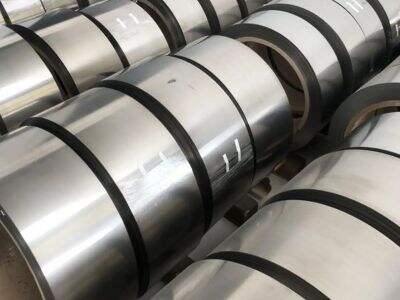It is a crucial solution for plumbing. They are the fittings used to connect pipes together, and they help transfer liquids or gases from one place to another. Selection of Materials: You have to select the right pipe fittings for your specific application in order to ensure maximum safety and efficiency. This guide helps you in exploring the significant factor that you need to consider when choosing the right material for pipe fittings.
How to Select the Proper Materials for Pipe Fittings
Entirely different materials can also be utilized for Ceramics pipe fittings. Yours will be the right one for you dependent on what your plumbing system needs, though. To pick the proper material for pipe fittings, consider the following eight important factors:
Temperature – The material you use ought to be able to withstand the fluid or gas entering the pipe. Therefore, for instance, if the fluid is very hot, you require a material that will not melt or deteriorate.
Pressure – The material must be able to withstand the pressure created from the fluid or the gas. When such pressure is too high, it can result in the cracks, ruptures or other actions on the materials can cause leaks.
Corrosion – Some gases or liquids have the ability to rust or corrode some materials with time. Consider whether the material will be damaged by the fluid or gas. Salty water, for instance, can destroy some metals, so a rust-free material has to be selected.
Saving Factor – The material must be affordable and within your budget. Although it may be tempting to use the cheapest, it's also important to consider how long the material will last. Every time that you do this, you will start saving money; because sometimes slightly more expensive material ends up saving you money, because the more you realize a material, the more resistant you will be.
Choosing the Correct Material for Your Pipe Fittings
The following are some popular materials for Electrically heated alloy material , as well as what to look for when making a selection:
Stainless Steel – It is extremely strong and well known resistant to rust. It can handle high pressure and hot temperatures very well effectively. That makes it an ideal choice for lots of plumbing systems, especially where the water is heated a lot.
Carbon Steel — This is another heavy-duty material, as carbon steel will resist pressure and heat. But it's not as resistant to rust as stainless steel. If you do opt for carbon steel, you will need to paint it or use some kind of special coating in order to resist rust.
Brass – Brass is a good option since it resists rust and corrosion very well. It is also relatively inexpensive, which makes it an excellent option for low-pressure plumbing systems. Brass is common for faucets and valves.
PVC — PVC,Electrically heated alloy material a word used to describe polyvinyl chloride, is a lightweight and low-budget material. It is most appropriate for low-pressure plumbing systems, like homes. But handle it with care as PVC can't handle high temp or pressure so use suitable situations use it.
Decision Making: Making the Right Decision
Selecting the proper material for pipe fittings Thermocouple materials can be a challenge. But with proper information, you can make the correct choice! When selecting your pipe fittings material always consider temperature, pressure, rust-resistant and cost. Your plumbing system will be functioning properly and you would feel comfortable knowing they will be functioning properly.
 EN
EN
 AR
AR
 DA
DA
 NL
NL
 FI
FI
 FR
FR
 DE
DE
 EL
EL
 HI
HI
 IT
IT
 JA
JA
 KO
KO
 NO
NO
 PL
PL
 PT
PT
 RO
RO
 RU
RU
 ES
ES
 SV
SV
 TL
TL
 IW
IW
 ID
ID
 SR
SR
 SL
SL
 UK
UK
 VI
VI
 HU
HU
 MT
MT
 TH
TH
 TR
TR
 AF
AF
 MS
MS
 GA
GA
 AZ
AZ
 MN
MN
 MY
MY
 KK
KK
 UZ
UZ
 KY
KY
 BN
BN

